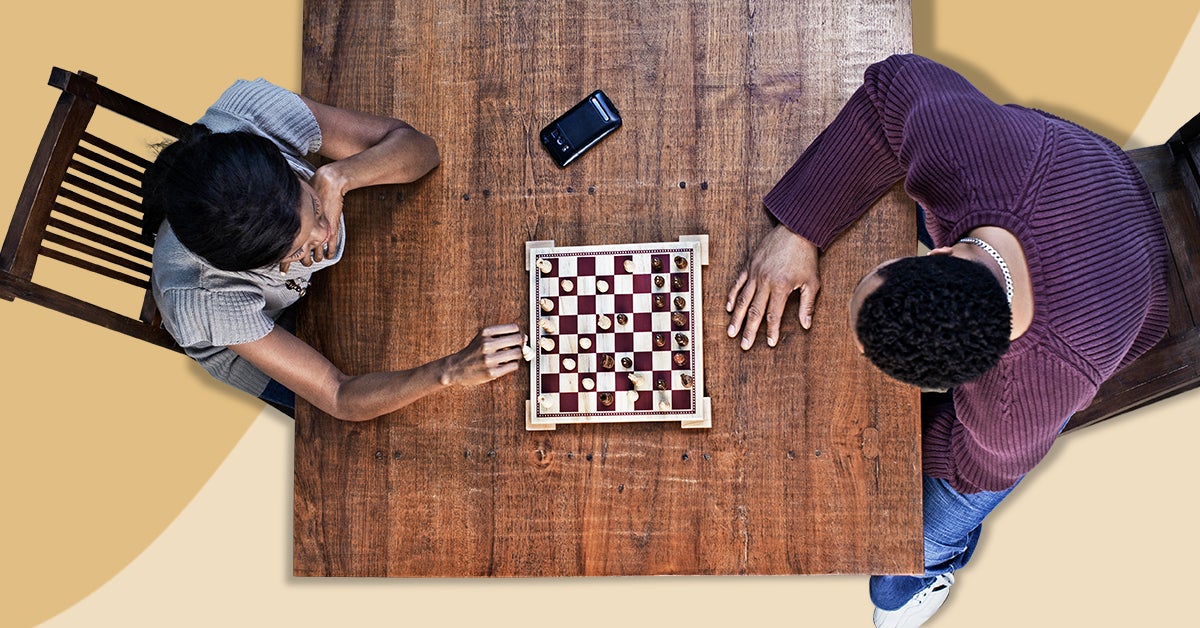Puzzles and games to boost cognitive performance
It is important to keep a sharp mind, especially now. While the pandemic is (maybe, a little, sort of) ending, many of us still don’t receive the daily stimulation we once received from crowded offices, robust happy hours, and events. social with friends and family.
To make sure you don’t fall into a “pandemic fog”, experts recommend playing games at home to give your brain a regular workout.
Mindful games are important for several reasons, according to Rebecca Marcus, LCSW, a New York graduate psychotherapist specializing in mindfulness:
- They can help increase focus, focus, and memory.
- They can help us to be more present in daily activities.
- While it doesn’t appear that brain games can prevent age-related cognitive decline and dementia, a growing body of research indicates that it can slow or delay them.
“We’re more likely to feel scattered, have trouble concentrating, or have memory loss if we don’t do things to exercise and keep our minds sharp,” says Marcus. “Just as we wouldn’t expect to hit the gym for 3 months and have muscle and strength forever without continuing to exercise, so does exercising our mind.”
It’s important to note that the game you choose should constantly increase in challenge and variety, according to Marcus. “Yes [you’re] by just playing the same thing over and over again, the mind is released and begins to operate on autopilot, ”she says.
Besides brain games, she says another way to challenge your brain is to simply vary your regular routines or tasks. For example, if you walk your dog on the same route every day, try going in a different direction one day. (See? Easy!)
You’ll also want to challenge both sides of your brain.
The left brain is known to perform tasks related to logic, such as science and math, while the right brain is more visual and intuitive. Games like Sudoku and puzzles are great for challenging the left side of the brain.
On the flip side, to strengthen the right side of your brain, you’ll want to “maintain your emotional intelligence by engaging in conversations where you evoke and adapt to the emotions of others,” says Sarah Schewitz, PsyD, registered psychologist. in Los Angeles.
You can also try out new creative hobbies such as:
- The painting
- photography
- creative writing
- playing music or learning to play an instrument
We took various criteria into account when creating our list. Some key features include:
- Expert advice in the field. We spoke to two psychology experts for their advice on what to look for when choosing a game.
- User reviews and customer reviews. We have taken into account user reviews and customer feedback from various websites that sell the products.
1. Scrabble
Besides bringing out the competitive spirit in all age groups, this classic word game strives to build your vocabulary and train your mind to focus on a single task. With a full dictionary of words to choose from, every game is different and you will never get tired of playing this game. It’s been around since 1948 after all.
2. Sagrada
Sagrada is a dice placement game that is halfway between a competitive board game and a puzzle. The goal is to carefully build a stained glass window by placing dice according to color and shade while respecting many restrictions. Users say they had so much fun playing Sagrada that they dreamed of glass dice at night.
3. Rummikub
This quick and easy to learn game combines both luck and strategy. The players take turns placing numbered tiles in series and in groups, in the manner of rummy. As the board changes, players are constantly adjusting their tiles until all of the tiles in their rack disappear. Rummikub can help you hone your sequencing, pattern recognition, and planning skills.
4. Puzzles
Puzzles are great because they work the left and right sides of your brain at the same time. Puzzles require logic, intuition and creativity at the same time, and it’s easy to get lost for hours working on it. Bonus: there are so many new aesthetic puzzle brands like Ordinary Habit, Piecework, and Whiled that showcase new artists from all over the world.
5. Rubik’s Cube
The Rubik’s Cube is known to be the best-selling and most famous puzzle in the world. With over 43 quintillion movements possible, this portable game is perfect for stimulating the brain during times of inactivity. Rather than browsing social media or watching TV while sitting in a waiting room, try to solve the cube. (But beware: it’s harder than it looks.)
6. Azul
Azul is a tile placement game in which players compete for the highest score by claiming tiles and placing them on their board to score points. It’s a great strategy game to play with the family, and it won the coveted Spiel des Jahres award in 2018, a guarantee of fun and quality.
7. Sudoku
Sudoku is a number puzzle in which you have to fill a grid with numbers from 1 to 9, with each number appearing only once in a row, column or box. This classic game makes you think critically and helps improve your concentration skills. While there are plenty of mobile options out there these days, nothing is harder than playing around with pen and paper.
8. Our moments as a couple: conversation starters for good relationships
“It’s also important to keep your emotional intelligence sharp by engaging in conversations where you evoke and adapt to the emotions of others. Take the time to have a meaningful conversation with a loved one and improve your emotional intelligence by observing them and asking how they feel during the conversation, ”says Schewitz.
This card game is filled with challenging questions such as “What will you never try again?” “Or” What have you lost since childhood that you would like to find? “
9. Crossword
10. Chess
If “The Queen’s Gambit” wasn’t inspiring enough, playing chess improves brain function, improves memory and cognitive skills, improves strategic thinking, and increases attention span. In this 2019 research review, scientists found that the cognitive benefits of failure may help protect older people from dementia.
Games are a great way to learn something new and to stimulate your brain. These options are incredibly fun, pandemic-friendly, accessible, and keep your mind sharp for the long haul.
Iman Balagam is a writer based in Houston, Texas. When she isn’t laughing at her own jokes or buying overpriced chia pudding, she is found reading fiction novels, attending a bike class, scrolling through TikTok, or waiting. his Spirit flight delayed to board. You can see more of her work on her website.

